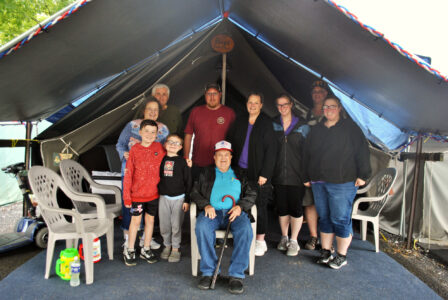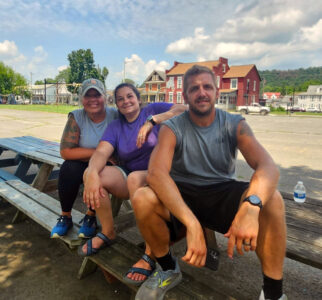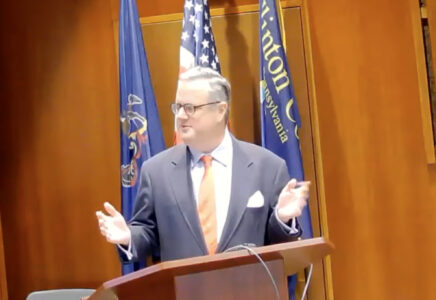When the ground gives way, homeowners are often left with the bill. PA lawmakers propose a safety net
BELLEFONTE — When landslides and sinkholes damage Pennsylvania houses, homeowners often have limited options to cover repairs and can end up stuck paying a mortgage on an unlivable property.
Now, state House lawmakers want a government-run insurance program to help fill this gap.
A bill introduced by state Rep. Emily Kinkead (D., Allegheny) would use $10 million from the state’s General Fund to establish the proposed Landslide and Sinkhole Insurance Program, modeled after a similar plan that helps homeowners cover damage from collapsed mines.
After the initial taxpayer-funded investment, Kinkead hopes the program — which would initially reimburse applicants up to $150,000 — becomes self-sustaining through premium payments.
The legislation would also establish a board to oversee the program within the Department of Community and Economic Development, and work with agencies and local governments to rank community risk, publish geological maps online, and recommend best practices for local governments to mitigate landslide and sinkhole risks.
Under the proposal, the program’s board will utilize a rating system to help determine insurance costs, to incentivize community landslide and sinkhole management. Communities that are less likely to have damage — either because the land is naturally safer or because they’ve made an effort to reduce risk — will get higher ratings and possibly a credit on their premium.
Properties found to violate laws and regulations overseeing development in areas prone to landslides and sinkholes will not be eligible for new coverage.
The bill passed out of committee this summer but has yet to receive a full vote in the state House.
“This is really just recognizing that the commercial insurance industry is not stepping up to cover these costs,” Kinkead said during a June legislative meeting.
Surveys on landslides and sinkholes from the Department of Conservation and Natural Resources outline why karst geology and sloped terrain threaten many parts of the state — especially southwestern, central, and eastern Pennsylvania.
While Kinkead pointed to landslides in Western Pennsylvania as a key motivation for the bill, state Rep. Paul Takac (D., Centre) noted during the state House committee meeting that his district is also no stranger to sinkholes. The area has seen them open up near the Nittany Mall, on Penn State’s campus, along a pedestrian and bike path, and even in the sheriff’s office parking lot.
On Dec. 25, 2022, a sinkhole opened up near 18 townhomes in Patton Township, breaking a water main and forcing residents to evacuate. State Rep. Scott Conklin (D., Centre) secured $180,000 in grant funds to help with inspections, renovations, and temporary shelter. He also introduced legislation that would offer hotels and motels a state tax credit equal to the cost of a discounted or comped room donated to a family displaced by a disaster; however, it never saw action in the legislature.
Patton Township Manager Amy Farkas said the municipality has recommended insurance options for homeowners, but officials could only find four companies willing to offer it. So the proposed insurance program, she told Spotlight PA, is a “great step forward.”
Farkas credited lawmakers for being “forward-thinking” by creating another insurance option and working with local governments to identify the people most at risk.
“I feel like sometimes the state doesn’t view us as a 100% partner, and this bill, to me, feels like they see us as their partner, and they want to work with us,” she said.
——
Spotlight PA is an independent, nonpartisan, and nonprofit newsroom producing investigative and public-service journalism that holds power to account and drives positive change in Pennsylvania.




